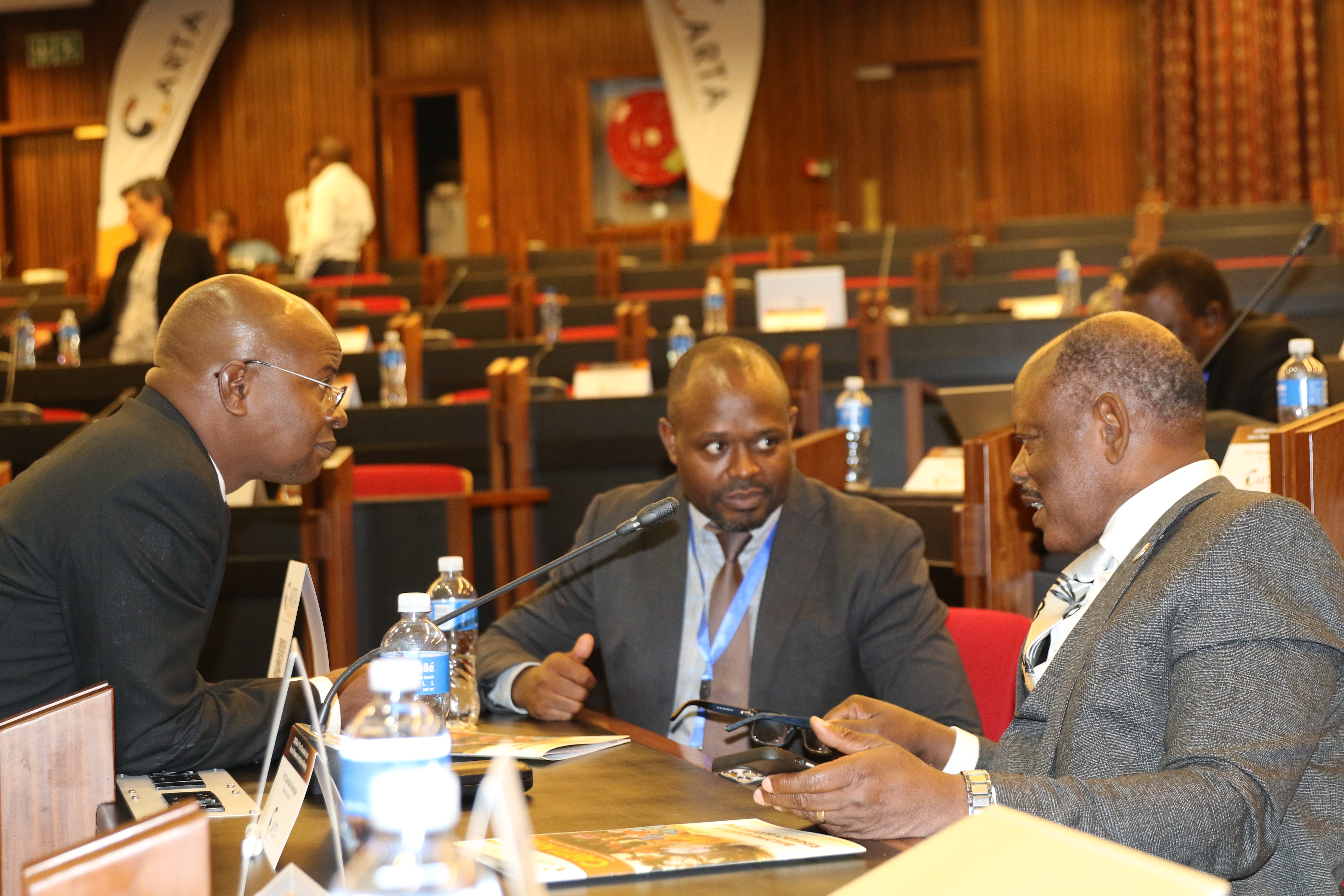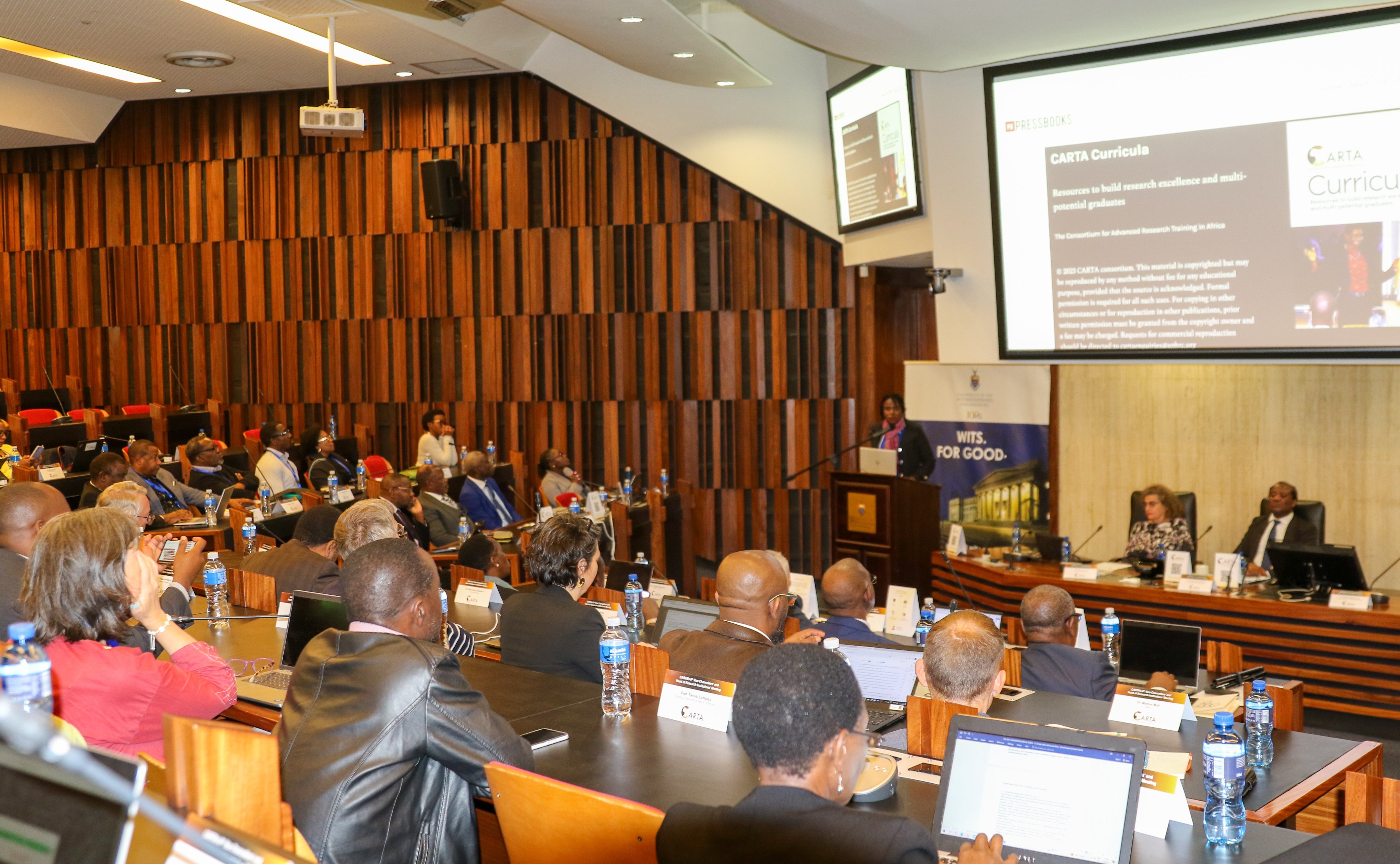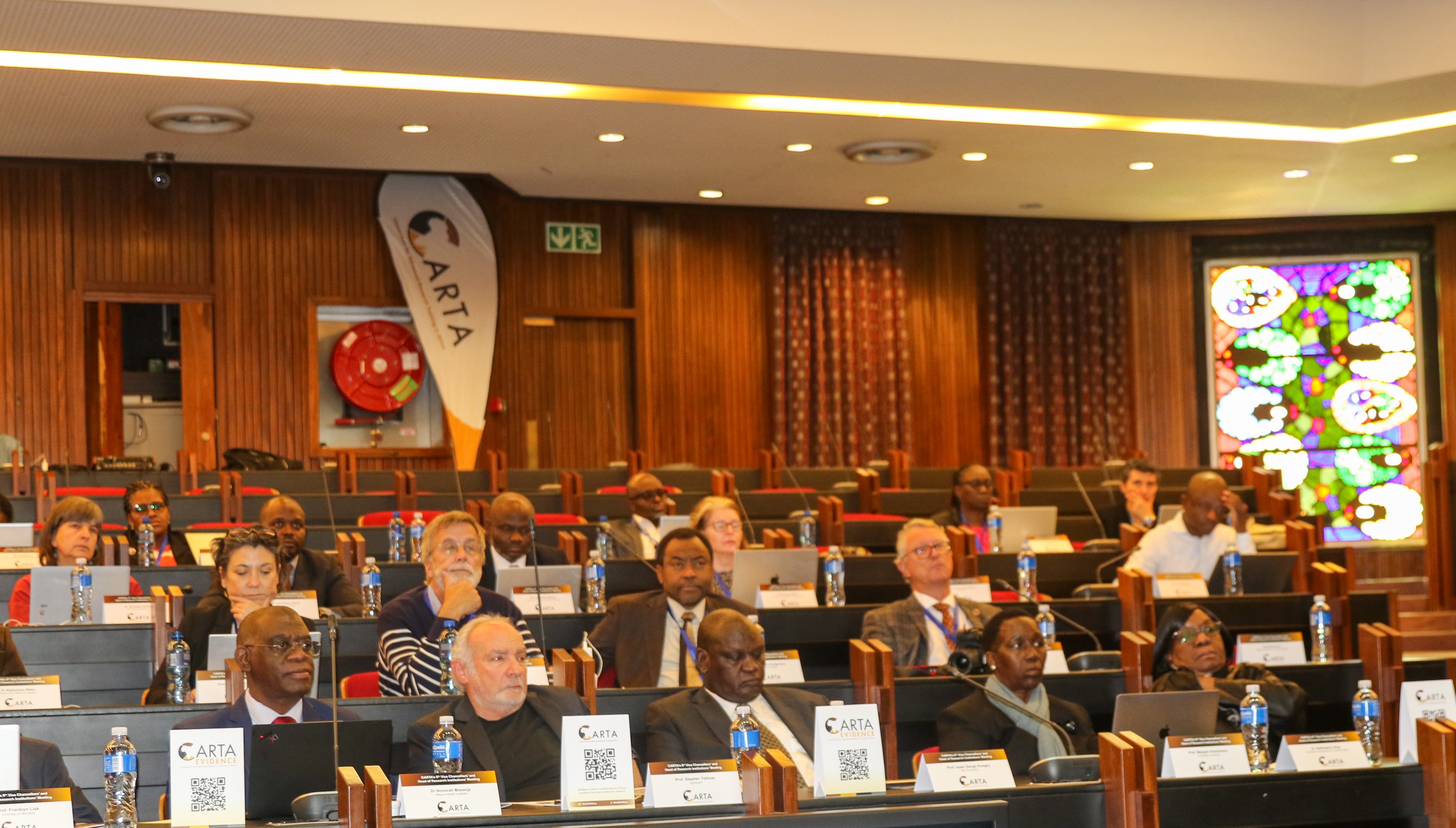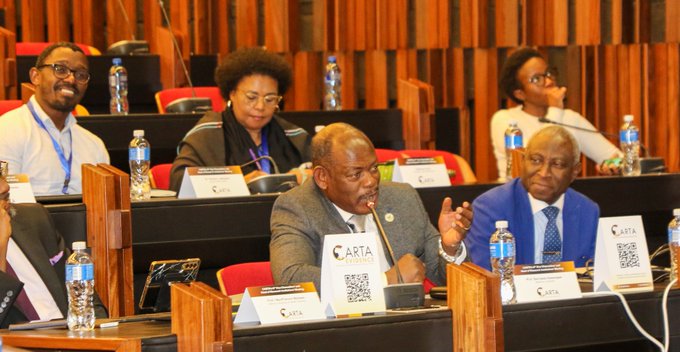
In collaboration with the University of the Witwatersrand (Wits), Consortium for Advanced Research Training in Africa (CARTA) convened its 6th Vice Chancellors and Head of Research Institutions Forum on September 13, 2023, at the Solomon Mahlangu House on the Wits campus. The forum brought together Vice Chancellors, Research Heads, CARTA partner representatives, funding delegates, and CARTA management. Chaired by Prof. Zeblon Zenzele Vilakazi, Vice Chancellor of Wits, the meeting aimed to foster collaboration among consortium members and enhance the impact of the CARTA Program on African research and doctoral training.

During the VC's forum, Makerere University Vice Chancellor Professor Barnabas Nawangwe convened a meeting with Prof. Edward Bbaale, and Dr. John Bosco Isunju (CARTA Focal Persons) where he appreciated the efforts of CARTA and the focal persons in promoting research and graduate training at Mak, and the several CARTA activities that have been implemented to date. He noted that what CARTA is doing is very impressive and relevant to our vision of becoming a research-led university. He inquired from the new Focal Person, Prof. Edward Bbaale, who is also the new Director of the Directorate of Research and Graduate Training (DRGT) whether he was getting well acquainted with CARTA and its model, and the integration of CARTA innovations in the graduate research and training at Makerere University.

Prof. Bbaale, noted that what CARTA is promoting aligns perfectly with the mission and vision of Makerere University – to become a research-led and innovation-driven institution, and are within the mandate of the DRGT. He noted the he and the Co-Focal Person, Dr. Isunju had had a couple of meetings during the preparation and implementation of CARTA activities, including the Training of Trainers workshops that are being supported by the NORHED II Project on institutionalisation of CARTA innovations (iCARTA).
Dr. Isunju reiterated the main goal CARTA, i.e., to produce a critical mass of high-quality African researchers who can address the complex health and development challenges facing the continent, which is done through a unique model of graduate training that integrates interdisciplinary and inter-institutional collaboration, mentorship, and networking. He noted that most of the CARTA Fellows at Makerere University and those from Makerere but registered at partner institutions had either completed or were about to complete their studies. He also notified the VC that the CARTA Alumni at Makerere University are uniquely prolific and are making significant impacts on society; a number of them have won big grants, post- doctoral fellowships, and appointments to professional bodies. The graduates apply the CARTA pedagogy in teaching, supervising, and mentoring other students and staff. Some of the graduates and fellows have also taken up leadership positions in academia, government, and civil society.
Dr. Isunju briefed VC about the CARTA research hubs grant, and how a team mostly comprised of CARTA Alumni, led by Dr. Kato Charles Drago had been awarded a seed grant to develop a proposal for a research hub focusing on emerging and re-immerging diseases. He also enumerated the impact the iCARTA project has made to date through the ToT workshops for joint advanced seminars (JASes), supervisor workshops, and the academic, professional, and administrative staff (APAS) workshops. He further noted the unique opportunities CARTA provides, where participants get to interact with peers, mentors, and experts from different institutions and countries, and that ToT participants conduct local trainings to cascade the knowledge and skills to their various units.
During their discussion, the trio identified current challenges, including the absence of a structured framework for the PhD by research program, leading to difficulties in monitoring progress as fellows join at varying intervals. Other challenges highlighted were the poor alignment of cross-cutting courses with the evolving needs of PhD fellows, a shortage of trainers for these courses due to retirements, and funding gaps for both PhD cross-cutting courses and CARTA cohort 11 following cuts in Sida funding.
The meeting noted that the DRGT was considering adopting a cohort model to streamline progress tracking and align Ph.D. cross-cutting courses with candidates' advancement. Currently, ongoing institutionalization efforts through the iCARTA project include supporting local capacity enhancement via Training of Trainers workshops and organizing a CARTA Day for graduates to showcase research projects, expand outreach, and inspire other doctoral fellows through mentoring sessions.
CARTA was featured as a parallel session during the NORHED week at Makerere University, and several CARTA graduates actively participated in a DRGT-organized workshop. Their contributions were instrumental in reviewing postdoctoral research and training at Makerere University and providing valuable input into the development of draft postdoctoral guidelines.
Overall, Makerere University Vice Chancellor Prof. Barnabas Nawangwe underscored the need for African governments to intentionally invest in postgraduate trainining and scholarships, besides creating supportive environments for cutting-edge research.

"Africa must strive to produce 100,000 PhDs in the next 10 years for accelerated development, as per the World Bank . While this might seem like a huge number, China manages to produce that number annually with a population that is nearly the same as that of Africa," said Prof Nawangwe.
The 6th CARTA Vice Chancellors' and Head of Research Institutions Forum facilitated constructive discussions and insights into the future of African research and doctoral training. The meeting underscored a commitment to collaboration and the pursuit of excellence in these vital areas.
Resolutions from the 6th VCs meeting
꧁ Visibility and Communication: Enhance communication and awareness of CARTA and its offerings beyond the immediate circle of participants. Efforts should be intensified to promote CARTA and its resources to a wider audience.
꧁Leadership Engagement: Strengthen the involvement of Deputy Vice-Chancellors to mainstream CARTA's initiatives. This approach ensures effective collaboration and decision-making, addressing transitional issues more efficiently.
꧁Collaboration with the African Research Universities Alliance (ARUA): Intensify efforts to collaborate with ARUA on activities of mutual interest. Leveraging the shared goals of both, initiatives can foster the exchange of knowledge and experiences.
꧁Demonstrating Impact: Track and highlight the multiplier effect of the CARTA program, specifically, the impact fellows are having in the institutions, including the impact of those who are supervising students at different levels.
꧁ Flexibility of Teaching Schedules: Universities to incorporate more flexible teaching schedules or workload distribution to accommodate the needs of academics involved in research and training. Universities need to consider mechanisms that would enhance the practice of teacher replacement to provide academicians and ECRs with protected time for research and academic engagement.
꧁Extension of Program Benefits: Universities to consider mechanisms that would support the extension of university benefits, such as fee waivers, to staff who are not on government contracts, but are working for the university on research projects.
By Davidson Ndyabahika

